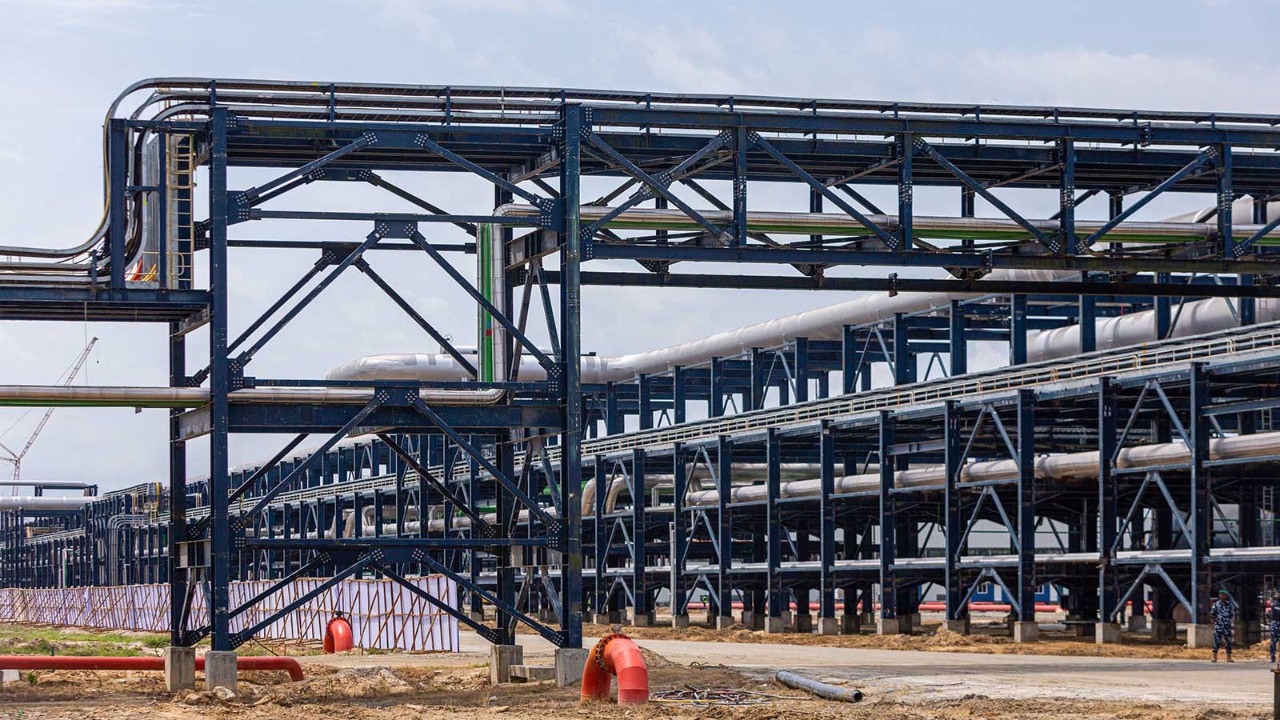
Last month, there was great excitement in Nigeria when the Dangote Petroleum Refinery produced its first barrels of petroleum. Costing US$19bn to build and with a capacity of 650,000 barrels per day (bpd), this massive operation is the largest in Africa and the seventh largest in the world. As it goes into production, a lot is riding on its success.
The implications for the future of the Nigerian economy are considerable. Key among them is that it sets the stage for Nigeria to significantly reduce, if not eliminate, its reliance on imported refined products. Despite being Africa’s largest crude oil producer, the country has for decades relied on fuel imports to meet its domestic consumption needs.
Plagued by inefficiency, under-utilisation and corruption, the country’s four state-owned refineries have been out of production for years, with the result that Nigeria imports more than 90% of its refined petroleum products. This reliance places a huge burden on the country’s foreign reserves, which in turn weakens its currency and contributes to inflationary pressures.
Nigeria could be transformed from net importer to net exporter of petroleum products
If all goes well, however, output from the new refinery could transform Nigeria from a net importer to a net exporter of refined petroleum, with significant implications for the Nigerian economy – the facility has the capacity to not only meet Nigeria’s domestic demand, but also to export refined products to other countries in Africa.
Ending the importation of refined products would have many benefits for Nigeria. For a start, it would reduce foreign exchange (FX) outflows, which would help stabilise the naira and ease inflation. It would also be beneficial for energy security, as supply would be less vulnerable to global price fluctuations.
The refinery is creating tens of thousands of jobs
In addition, the refinery is creating tens of thousands of direct and indirect jobs and, significantly, could contribute to a resurgence in the manufacturing sector. As refined products become more accessible and cheaper, industries that rely on petroleum inputs could become more competitive, sparking growth in industrial output and exports. The result would be improved purchasing power for Nigerians and a boost to overall economic stability.
Challenges remain
Capitalising on this development won’t be easy, however. The Dangote Petroleum Refinery will not fix all the systemic issues that have plagued the country’s energy sector for many years. While refining capacity will increase, concerns about governance, corruption and inefficiency within Nigeria’s broader oil and gas industry persist. Unless these are tackled, they could undermine progress and reduce the positive vision to sand.
There is no denying this is a pivotal moment, with the potential to bring about a reshaping of the national economy. But the government must tread carefully, balancing immediate gains with long-term sustainability.
Angola goes it alone
Late last year, the African continent’s second-largest oil producer, Angola, made the surprising move to exit the global industry cartel, the Organisation of Oil Producing Countries (OPEC), citing frustration with the impact of falling OPEC production quotas on the development of its oil industry.
In recent years, Angola has seen a marked decline in oil production, mainly as a result of underinvestment, ageing infrastructure, and a lack of major new discoveries, which has contributed to a public debt crisis and a slowdown in economic growth.
Like Nigeria, it is heavily dependent on income from oil exports (they account for 90% of export revenues and 70% of overall government revenues), which makes the economy vulnerable to price shocks.
The Angolan government believes the break from OPEC offers the chance for economic revival and, crucially, for increased foreign direct investment in its oil industry. Free from OPEC constraints, it can offer more attractive terms to international oil companies, and prioritise investments in exploration and production, which could help stabilise the country’s revenues and economy.
The move could have negative repercussions, however, as the cartel provides a united front in controlling global oil supply and prices. Angola’s ability to attract investments and increase production hinges on prices, which have become increasingly volatile.



